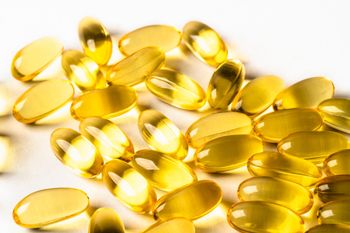
Prenatal supplements are still a valuable tool for prenatal nutrition: CRN responds to The American Journal of Clinical Nutrition study
In a recently published study, researchers concluded that many dietary supplements may not provide pregnant women in the U.S. with adequate doses of key nutrients.
Researchers of a new study1 published in The American Journal of Clinical Nutrition say that many pregnant women in the U.S. taking dietary supplements may not be getting adequate doses of key nutrients from those supplements that they need for prenatal health.
Between 2007 and 2019, the researchers conducted 24-hour dietary recalls in 2450 pregnant women in the U.S. Based on the information gathered, the researchers estimated what the subjects’ intake of six key nutrients would be from foods alone: vitamins A and D, folate, calcium, iron, and omega-3 fatty acids. Then, they used the National Institutes of Health’s Dietary Supplement Label Database to determine the level of those nutrients in 20,547 dietary supplements, including 421 prenatal products. Their goal was to determine which target doses of those six nutrients would be “needed to shift 90% of participants to consume above the estimated average requirement and keep 90% below the tolerable upper limit.”
The researchers said that of the 20,547 supplements they identified, only 69 products (33 of them prenatal products) contained all six nutrients. Seven products (two of them prenatal) contained target doses for five of the nutrients. And, they said, “Only one product (not a prenatal) contained target doses for all six nutrients,” but said that the cost of that product was high and required 7 tablets per daily serving.
Their conclusion? “Almost no U.S. dietary supplements provide key nutrients in the doses needed for pregnant women.”
Dietary supplement association the Council for Responsible Nutrition (CRN; Washington, DC)
In the statement, Andrea Wong, PhD, CRN’s senior vice president, scientific and regulatory affairs, said: “We appreciate the study authors’ efforts to add to the body of research on nutrient needs and supplementation during pregnancy. This latest research reinforces what skilled dietitians and nutritionists have been saying for years—dietary supplements, even prenatal supplements—are simply ‘supplements’ to a healthy diet, not substitutes. While these critical products absolutely do fill some nutritional gaps, they are not intended to replace healthy eating, and certainly not during the critical time of pregnancy.”
She continued: “The results of the study are not surprising—getting sufficient levels of all the necessary nutrients to support a healthy pregnancy means eating right, as well as using a prenatal multivitamin and other dietary supplements when needed. Including every key nutrient in a single product at levels to meet the needs of nearly every woman during pregnancy is, of course, challenging. These products absolutely increase the daily intake of these nutrients, but even as food patterns vary across the population, one product should not be expected to provide exactly 100% of each person’s precise nutritional needs. However, the dietary supplement industry strives to provide products that best serve most people during pregnancy.”
Reference
- Sauder, K.A.; Couzens, G.L.; Bailey, R.L.; et al. Selecting a Dietary Supplement with Appropriate Dosing for 6 Key Nutrients in Pregnancy. Am J Clin Nutr. 2023, 117 (4), 823-829. DOI:
10.1016/j.ajcnut.2022.12.018
Newsletter
From ingredient science to consumer trends, get the intel you need to stay competitive in the nutrition space—subscribe now to Nutritional Outlook.





